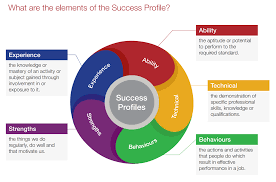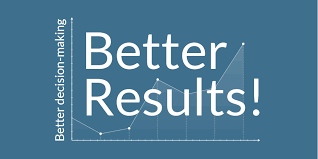Seven Tips for Making Good Decisions
- Consider All Options: Before making any decision, it is important to weigh the pros and cons of each option. Take the time to evaluate all available solutions before making a choice.
- Seek Advice: Don’t be afraid to ask for help when you need it. Talking through your options with someone else can help you gain clarity and perspective on the situation.
- Think Long-Term: When making decisions, consider how your choice will affect you in the future as well as in the present moment.
- Stay Calm: Making decisions while feeling emotional can lead to bad choices that you may regret later on down the line. Take a few moments to take a deep breath and collect yourself before deciding what to do next.
- Make a List of Pros & Cons: Writing down all of your options and their respective benefits and drawbacks can make it easier for you to see which option is best for you in the long run.
- Trust Your Instincts: At the end of the day, only you know what’s best for yourself – so trust your gut! If something doesn’t feel right, don’t be afraid to go against popular opinion or advice from others if necessary; after all, it’s your life!
- Learn from Mistakes: No one is perfect – we all make mistakes from time to time! Instead of beating yourself up about them, use these experiences as learning opportunities so that you can make better decisions in future scenarios
Consider All Options: Before making any decision, it is important to weigh the pros and cons of each option. Take the time to evaluate all available solutions before making a choice.
Making decisions can be difficult, especially when there are multiple options available. It is important to take the time to consider all of your options before making a final decision.
By evaluating the pros and cons of each option, you can make an informed decision that best suits your needs. Consider what each option has to offer and how it will affect you in the long run. Think about how it will impact your finances, relationships, and other areas of your life.
Take the time to research and explore each option thoroughly before committing to one. Ask yourself questions such as: Is this the best choice for me? What are the potential risks? Are there any alternatives that I haven’t considered?
It is also important to seek advice from trusted sources when making decisions. Talk to family members, friends, or mentors who may have more experience in the area you are considering. They may be able to provide valuable insight into which option is best for you.
By taking the time to consider all of your options before making a decision, you can ensure that you make an informed and educated choice that will benefit you in the long run.
Seek Advice: Don’t be afraid to ask for help when you need it. Talking through your options with someone else can help you gain clarity and perspective on the situation.
Making decisions can be difficult and stressful, especially when the stakes are high. Fortunately, there is a simple tip that can help you make better decisions: seek advice. Don’t be afraid to ask for help when you need it. Talking through your options with someone else can provide clarity and perspective on the situation that you may not have been able to see on your own.
Talking to someone who has more experience or knowledge in a particular area can be very beneficial. They may be able to provide insights that you hadn’t considered before or point out potential pitfalls in your plan of action. Additionally, they may be able to offer suggestions on how to approach the situation differently or provide resources that could help you make a more informed decision.
Seeking advice doesn’t have to mean asking someone else what they think you should do; it simply means talking through the situation with an impartial person who can provide helpful input and guidance. Ultimately, it’s still up to you to make the decision, but having someone else’s opinion can give you more confidence in your choice and help ensure that all angles have been considered.
Think Long-Term: When making decisions, consider how your choice will affect you in the future as well as in the present moment.
Making decisions can be difficult, especially when it comes to important life choices. It is easy to get stuck in the present moment and forget to think about how our choices will affect us in the long-term.
When making decisions, it is important to consider the future as well as the present. Thinking long-term can help you make more informed decisions that will benefit you in the future. For example, if you are considering taking a job that pays well but requires long hours and a lot of travel, think about how this decision will affect your lifestyle and personal relationships in the future.
Thinking long-term can also help you make decisions that are more aligned with your goals and values. Consider how the decision you make today will impact your life down the line, and make sure it is something that you can live with for years to come.
Making decisions with a long-term perspective can help ensure that our choices are beneficial both now and in the future. By taking a step back and looking at how our decisions will affect us in the long run, we can make more informed choices that will lead to greater success and fulfillment over time.
Stay Calm: Making decisions while feeling emotional can lead to bad choices that you may regret later on down the line. Take a few moments to take a deep breath and collect yourself before deciding what to do next.
Making decisions can be one of the most difficult tasks that we face in our lives. It is important to take the time to make sure we are making the best decision for ourselves and our future. One tip for successful decision making is to stay calm. Making decisions while feeling emotional can lead to bad choices that you may regret later on down the line.
When you feel overwhelmed or emotional, take a few moments to take a deep breath and collect yourself before deciding what to do next. This will help you gain clarity and focus on the situation at hand so that you can make an informed decision. Taking a few moments to pause and breathe will also help to clear your mind and reduce stress so that you can think more clearly about your options.
Additionally, it is important to remember that there is no right or wrong answer when it comes to making decisions. It is up to each individual person to decide what they believe is best for them in any given situation. Staying calm during decision-making processes will help ensure that you are considering all of your options carefully and making the best choice for yourself in the long run.
Make a List of Pros & Cons: Writing down all of your options and their respective benefits and drawbacks can make it easier for you to see which option is best for you in the long run.
Making decisions can be hard, especially when it is a big decision that will have a major impact on your life. But don’t worry, there are ways to make it easier. One of the best ways to make a decision is to make a list of pros and cons.
By writing down all of your options and their respective benefits and drawbacks, you can more easily see which option is best for you in the long run. This list should include not only the obvious pros and cons, but also any other factors that may influence your decision such as cost, timing, or availability.
Making a list of pros and cons can help you weigh all of the options available to you and make an informed decision. It can also help to eliminate any emotional bias that may be clouding your judgment, allowing you to make a rational decision based on facts rather than feelings.
By taking the time to create a list of pros and cons for each option available to you, you can ensure that you make an informed decision that is best for your long-term goals. So if you’re having trouble making a decision, try making a list of pros and cons – it just might help!
Trust Your Instincts: At the end of the day, only you know what’s best for yourself – so trust your gut! If something doesn’t feel right, don’t be afraid to go against popular opinion or advice from others if necessary; after all, it’s your life!
When it comes to making decisions, it can be hard to know who or what to trust. Should you follow the advice of others, or go with your own intuition? The answer is simple: trust your instincts.
In a world where there are so many different opinions and perspectives, it’s important to remember that only you know what’s best for you. Your instinct is the key to making decisions that are right for you, and that reflect your values and beliefs.
It’s easy to get caught up in other people’s opinions and advice, but if something doesn’t feel right deep down inside, don’t be afraid to go against popular opinion. After all, this is your life and you have the power to make choices that will lead you down the path that is best for you.
Trust your instincts when making decisions; they will rarely lead you astray. It might not always be the most popular choice, but it will be the one that is right for you!
Learn from Mistakes: No one is perfect – we all make mistakes from time to time! Instead of beating yourself up about them, use these experiences as learning opportunities so that you can make better decisions in future scenarios
Making mistakes is an inevitable part of life. While it can be difficult to accept our own flaws, it’s important to recognize that no one is perfect and that mistakes can be a great learning opportunity. Learning from our mistakes is an important part of developing decision-making skills.
Rather than beating yourself up over a mistake, take the time to reflect on what went wrong and what you could have done differently. Ask yourself questions such as “What could I have done differently?” and “What did I learn from this experience?” This will help you gain insight into how your decisions led to the outcome, and how you can make better decisions in similar future scenarios.
It’s also important to remember that mistakes are not always bad – sometimes they can lead to positive outcomes. For example, if you make a mistake at work but quickly identify it and come up with a solution, this could help you gain recognition from your colleagues or superiors for being able to think on your feet and problem solve quickly.
Learning from your mistakes is an important part of improving decision-making skills, so don’t be afraid to embrace them as learning opportunities!




